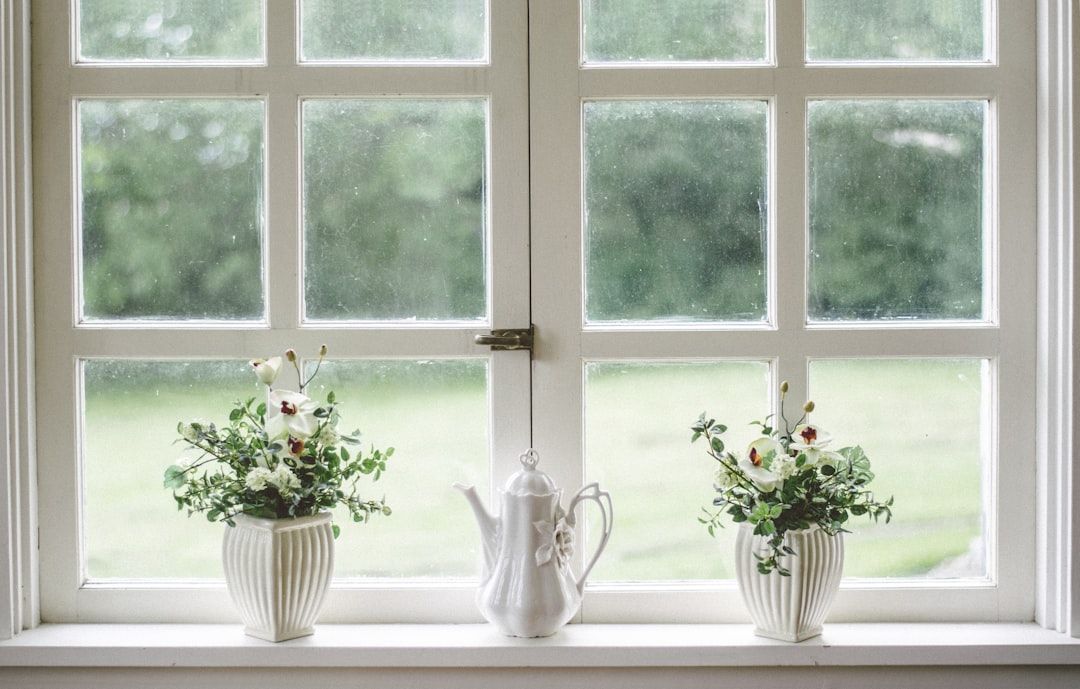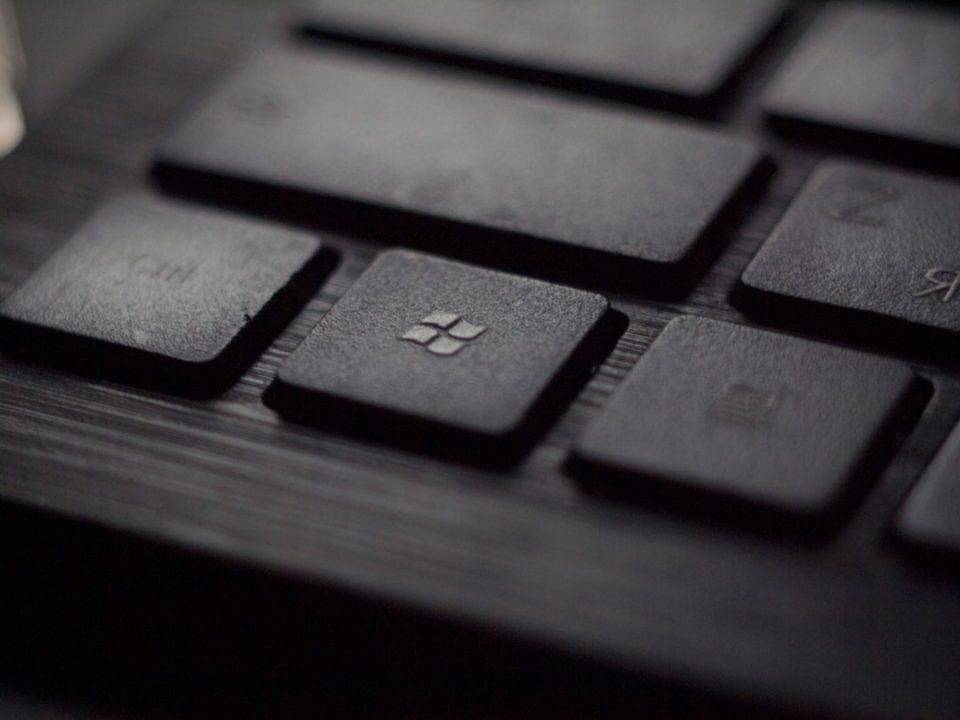IN BRIEF
|
L’interview windows in PVC is essential to ensure their sustainability and their aesthetic. For effective cleaning, start with strive dust using a soft brush or vacuum cleaner. Next, prepare a solution based onsoapy water or white vinegar diluted in hot water to spray on the PVC frame. Avoid using abrasive products such asbleach, L’ammonia or theacetone, which can damage the material. Also be sure to maintain the joints and to check the correct functioning of the hinges. By following these simple steps, you will guarantee clean and good PVC windows for a long time.
PVC windows are known for their durability and energy efficiency. However, regular maintenance is essential to maintain their appearance and functionality. In this tutorial, we offer you practical advice for cleaning and maintaining your PVC windows to optimize their longevity.
Preparing for cleaning
Before you start cleaning, it is important to gather the necessary tools. Prepare a bucket of hot water with mild soap or a few drops of dishwashing detergent. Avoid any products containing aggressive solvents such as bleach or acetone, which can damage PVC.
Cleaning frames and windows
To clean the PVC frame, start by using a vacuum cleaner or a soft brush to remove dust and dirt. Next, spray your soapy solution on the surfaces to be cleaned. Use a soft cloth or sponge to gently scrub the chassis and PVC parts, making sure to rinse well with clean water to avoid residue.
Using white vinegar
White vinegar is an excellent ally in the maintenance of PVC. Prepare a solution consisting of 4 glasses of hot water And 1 glass of white vinegar in a spray bottle. Apply this solution to PVC surfaces to degrease and make windows shine. Rinse with clean water after application for optimal results.
Maintenance of joints and mechanisms
The joints of your PVC windows also require special attention. It is recommended to clean them regularly with a damp cloth. To lubricate them, use a special grease for PVC joinery. This will ensure proper functioning of the hinges and opening systems.
Prevention of deterioration
To prevent your windows from yellowing or dulling over time, avoid using abrasive products. Regular cleaning, at least twice a year, not only maintains the aesthetic appearance of your windows, but also prevents the accumulation of dirt which can damage the material.
Consequences of forgetting maintenance
A lack of maintenance can lead to major problems. Accumulated dirt can cause sealing problems, which can compromise the thermal and sound insulation of your home. In addition, unmaintained joints can lead to water infiltration, promoting the formation of mold.
Ecological solutions
For people concerned about the environment, know that there are ecological cleaning solutions. Use the baking soda mixed with water allows you to clean PVC effectively without damaging the material. This method is both environmentally friendly and economical.
To find out more about the advantages and disadvantages of PVC windows, do not hesitate to consult this article: PVC windows: advantages and disadvantages.
If you are considering other options for your windows, you can also explore wooden windows, which are a sustainable alternative. More information on this topic is available here: Why choose wooden windows for your home.

PVC windows are known for their durability and low maintenance. However, regular and adequate cleaning is essential to maintain their appearance and maximize their longevity. This guide presents practical advice for maintaining PVC windows, covering cleaning techniques, recommended products, as well as actions to avoid.
Regular cleaning of PVC windows
To ensure the good condition of your PVC windows, it is advisable to carry out regular cleaning. Use a soft brush or a vacuum cleaner at low power to remove dust accumulated on the chassis and seals. Maintenance every month is recommended to avoid clogging.
Suitable cleaning products
The use ofsoapy water is strongly recommended for cleaning PVC windows. Prepare a solution of lukewarm water and a few drops of dishwashing detergent or a mild soap. This formula is effective in removing dirt without damaging the PVC.
Using white vinegar
THE white vinegar is an excellent ally for cleaning your PVC windows. Dilute it in hot water in a spray bottle, at the rate of four glasses of water to one glass of vinegar. Spray this solution on the chassis and wipe with a soft cloth for a flawless finish without scratching the PVC.
Products to avoid
When maintaining your PVC windows, it is crucial to avoid certain aggressive products that could damage the material. Do not mix bleach, ammonia or acetone with your cleaning solutions, as these substances can alter PVC and reduce its durability.
Caring for joints and mechanisms
The joints of your PVC windows also require special attention. Inspect their condition regularly and clean them with a damp cloth. For the proper functioning of the mechanisms, remember to lubricate them with a suitable grease, this will contribute to the longevity of the installation.
Tips to Prevent Yellowing
Over time, PVC can yellow. To prevent this phenomenon, clean your windows regularly and use natural solutions such as baking soda. A paste made from baking soda and water can be applied to the yellowed areas, then rubbed gently.
Optimize the insulation of PVC windows
Proper maintenance of your PVC windows contributes not only to their aesthetics, but also to their energy performance. Regularly ensure that the seals are in good condition to avoid any heat loss. Preparing for winter is essential to maximizing the energy efficiency of your home.
For tips on choosing the most suitable windows for an eco-friendly home, check out this article on how to choose your PVC windows.
Finally, if you are considering diversifying your window choices, explore the eco-responsible wooden windows for a durable and aesthetic option. Also discover the different types of wooden windows available to broaden your choices for your home.
- Use a soapy water solution for cleaning frames.
- Vacuum the dust before applying the cleanser.
- Avoid bleach and ammonia which deteriorate PVC.
- Apply white vinegar to remove stubborn stains.
- Use a soft cloth for effective wiping without scratching.
- Check the joints to prevent water infiltration.
- Lubricate the hinges with a suitable grease regularly.
- Protect windows bad weather in winter by checking the tightness.

| Action | Description |
| Strive | Use a vacuum cleaner to remove dust from corners and joints. |
| Cleaning with soapy water | Prepare a solution of warm water and mild soap to clean the frames. |
| White vinegar | Apply a solution of vinegar and water for a deep clean. |
| Avoid certain products | Never use bleach, ammonia or acetone, as this can damage the PVC. |
| Joint care | Inspect and clean joints regularly to prevent dirt buildup. |
| Hinge lubrication | Use appropriate grease to ensure proper functioning of the hinges. |
| Cleaning frequency | Clean your windows at least twice a year to maintain their appearance. |
| Weather protection | Check the condition of joints and indentations to prevent water infiltration. |
| Checking drainage | Make sure drainage systems are not blocked to prevent leaks. |
PVC windows are a popular option for their sustainability and their low maintenance. However, to guarantee their longevity and aesthetic appearance, good maintenance is necessary. In this article, we offer you practical advice for cleaning and maintaining your PVC windows effectively.
The essential steps of cleaning
To ensure effective cleaning of your PVC windows, it is recommended to follow a multi-step process.
Vacuum the dust
Start by vacuuming up the dust and dirt accumulated on the chassis. Use a vacuum cleaner or a soft brush to remove dust. This first step facilitates the application of cleaning products by avoiding scratches on the surface.
Preparing the cleaning solution
The best solution for cleaning PVC windows is a mixture of hot water and white vinegar. Dilute four glasses of hot water with one glass of vinegar in a spray bottle. Vinegar is a natural cleaner that effectively removes stains without damaging the material.
Application of the solution
Spray the prepared solution on the PVC frame and on the windows. Leave it on for a few minutes to allow the cleaner to work on the dirt. Then pass a soft cloth or a non-abrasive sponge for wiping. This ensures thorough cleaning without scratching the PVC.
Products to avoid
Choosing the right cleaning products is crucial to avoid damaging PVC. Strictly avoid products containing corrosive solvents, such as thebleach, L’ammonia or theacetone. These substances can deteriorate the surface and cause yellowing over time. Prefer gentle products such as black soap in a water solution for cleaning.
Maintenance of joints and other elements
The silicone seals around your windows should also be monitored. Check their condition regularly and clean them with a damp cloth. When they are damaged, it is recommended to replace them to ensure proper optimal sealing and avoid water infiltration.
Prepare your windows for winter
Before winter arrives, preventative maintenance is recommended. Check the hinge lubrication for proper operation. Apply a grease designed for PVC joinery to prevent joints from seizing. This ensures smooth operation even in cold weather.
Cleaning frequency
Regular maintenance is the key to keeping your PVC windows in good condition. It is recommended to carry out a complete cleaning at least twice a year. However, in cases of extreme weather conditions or dust accumulation, additional cleaning may be necessary.
Following these maintenance tips will allow you to preserve the aesthetic appearance and durability of your PVC windows. Simple and regular maintenance will guarantee you installations in perfect condition for many years.
Testimonials on the maintenance of PVC windows: practical advice
Mary, 32 years old: “I have always had difficulty maintaining my PVC windows. After discovering the trick of cleaning with a solution based on white vinegar and hot water, I saw a huge difference. My windows are now sparkling clean and the process has become much easier. Plus, it doesn’t require harsh chemicals!”
Pierre, 45 years old: “I always thought that cleaning my windows was a complicated task. But by integrating the use of soapy water in my routine, I noticed that cleaning was faster and more effective. I cover my windows with a simple mixture of warm water and mild soap, and scrub with a soft cloth. The result is impeccable!”
Sophie, 27 years old: “THE seals of my windows were often dirty, which compromised their insulation. I learned that cleaning them regularly with a damp cloth and a little soap will extend their life. This makes maintenance a quick and easy task.”
Thierry, 60 years old: “After using harsh household products, I noticed that the PVC on my windows had started to degrade. Since then, I have only opted for gentle products like baking soda and the vinegar. My windows have never looked so good! This made me realize that maintenance can be simple and respectful of materials.”
Lucy, 35 years old: “I always dreaded having to clean my windows, especially in the winter. But I found that vacuuming up the dust before scrubbing with a soapy solution made the whole process much easier. My windows are brighter and I don’t have to no more this apprehension of maintenance.”

